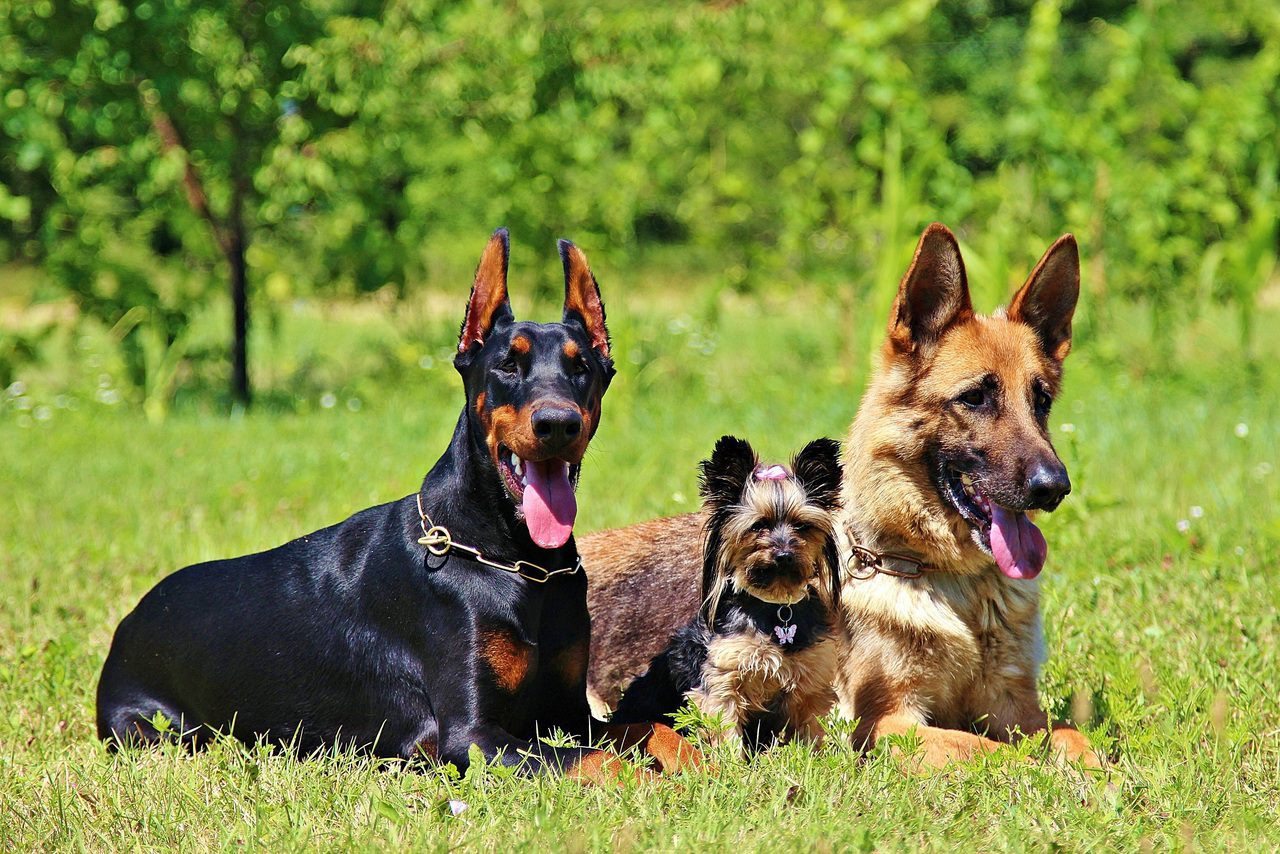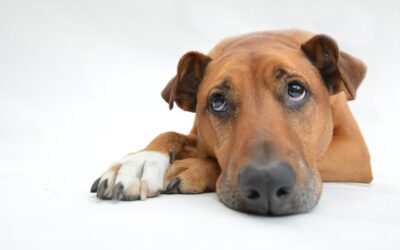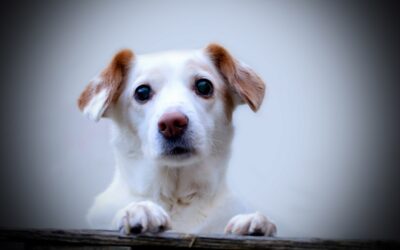Written by Dr Elle Burton-Bradley, Veterinarian, The Village Vet
Ready to bring a dog into your home? Make sure you read our blog on How to Choose a New Dog before you embark on the breed choices detailed below.
Choosing a dog breed isn’t (and shouldn’t be) that simple. Picking a breed that suits your lifestyle and budget is crucial, rather than choosing one based on looks. The breeds that we know today come from long lines of selective breeding for specific purposes, some more specialised than others. When selecting a breed, ask yourself “what was this breed designed for?”. This simple question will give you an understanding of the temperament and requirements to find the perfect fit for your family. And remember, owning a dog is a 15-year commitment!
The most popular dog breeds in Australia are:
Cavoodle (Cavalier King Charles spaniel X Poodle)
This is absolutely no surprise, with the majority of our new puppy checks being these adorable little fluff balls! Cavoodles are great family pets and perfect for first time dog owners, or those that want an easy-going pup.
Considerations
- Regular grooming – their beautiful coats require regular grooming.
- Separation anxiety – poodles are notorious for this due to their intelligence and dependence on humans, so training is essential.
- Heart disease – Cavalier King Charles spaniels are known for developing heart disease as they age. This condition is degenerative (uncurable) but is treatable for a long and quality life!
- Luxating patellas – many small and toy breeds have shallow patellar grooves, meaning their patella (knee cap) may easily pop out of position causing pain and arthritis.
Golden retriever
The picture-perfect dog! Goldens are loveable, goofy and gentle dogs perfect for families with young kids.
Considerations
- Love eating and chewing things they shouldn’t, like socks, shoes, anything they find in the bin, so be prepared for some afterhours visits if the kids leave their school socks lying around!
- Large, strong breed that is a bit silly. While this is a big part of why they are so popular and loveable, it highlights the importance of obedience training especially walking on the lead and not jumping up.
- Hip dysplasia – painful inherited condition that affects the hips causing arthritis.
Border collies
Well regarded as the smartest dog breed, they were designed for sheep herding.
Considerations
- These intelligent dogs thrive with a job, and if they are left without mental stimulation, be prepared for a path of destruction and barking.
- Loyal and protective, these dogs love being given tasks and learning new tricks, but their loyalty comes with protection of their family, leading to the potential for aggressive behaviours. Socialisation and training is crucial.
French bulldogs
Sweet and goofy!
While Frenchies won’t land on any of the intelligent dog lists, they are definitely one of the most affectionate breeds.
Considerations
- Predisposed to significant health conditions like breathing difficulties (brachycephalic obstructive airway syndrome), skin and gut issues, and spinal disease.
- Luxating patellas – many small and toy breeds have shallow patellar grooves, meaning their patella (knee cap) may easily pop out of position causing pain and arthritis.
- Lifestyle adjustments, like walking during the cooler parts of the day, avoiding jumping onto and off couches, weight management.
German shepherds
Bred for herding, so love to be with their herd (family) and are fiercely loyal dogs.
Considerations
- Highly intelligent breed that thrives with training and jobs (this is why they make perfect police dogs).
- Large and strong breed – essential to train them to walk nicely on a lead
- Protective nature can make them overprotective, leading to aggression towards people and other dogs.
- Hip dysplasia – painful inherited condition that affects the hips causing arthritis.
- Bloat or GDV (gastric dilation and volvulus) – surgical emergency more common in large, deep chested dog breeds.
Groodles (Golden retriever X Poodle) and Labradoodles (Labrador retriever X Poodle)
Intelligent and silly!
Considerations
- As with any crossbreed, you never know which components of the parent breeds your pup will inherit, some Groodles are more Golden retriever and others are more Poodle.
- Separation anxiety – poodles are notorious for this due to their intelligence and dependence on humans, so training is essential.
- Low shedding (mostly) – with their poodle genes they (can) be low allergenic.
- Large, strong breed requires obedience training especially walking on the lead and not jumping up.
Labrador retriever
Easily trained, loving and full of energy.
There is a reason Labs are used for a range of jobs (with the police and customs, helping visually impaired people, and as gun dogs).
Considerations
- Large, strong breed requires obedience training especially walking on the lead and not jumping up.
- Highly intelligent breed that thrives with training and jobs.
- Love eating and chewing things they shouldn’t.
- Hip dysplasia – painful inherited condition that affects the hips causing arthritis.
Cavalier King Charles spaniels
Loving, gentle lapdogs.
These dogs were selectively bred to be companions, they are easily trained and happy to go with the flow.
Considerations
- Perfect family dogs and for first time dog owners.
- Regular grooming – their beautiful coats require regular grooming.
- Heart disease – genetically predisposed to developing heart disease. While this is a scary notion, regular vet checks can pick up early disease to start medications to slow its progression. (If you’d like to learn more, we have a heart disease blog coming soon.)
Jack Russell terriers
Athletic, vocal, stubborn, intelligent and loving!
These little balls of energy were bred for sport and hunting, by chasing foxes and badgers out of burrows.
Considerations
- Require high physical and mental stimulation, these dogs notoriously never stop!
- Intelligent – they thrive with a job, so if they are bored and left alone be prepared for some destruction. Suited to agility and flyball to keep their brains and bodies stimulated.
- Stubborn and loyal – they can be difficult to train due to their stubborn nature but are exceptionally loyal to their families, consistent training is a must.
- Tough and resilient – these dogs are hardy and have few health conditions (luxating patellas are common).
- Socialisation with people and other dogs is crucial, and are not suited to families with small pets like rabbits.
Dachshunds
Playful, vocal and stubborn.
Similar to the Jack Russell, Dachshunds are a working and hunting breed and are notoriously stubborn.
Considerations
- Spinal disease (intervertebral disc disease, IVDD) – predisposed to IVDD due to their conformation (long bodies, short legs). Lifestyle factors like obesity, jumping, poor handling, and intense exercise increase their risk of IVDD.
- Luxating patellas – many small and toy breeds have shallow patellar grooves, meaning their patella (kneecap) may easily pop out of position causing pain and arthritis.
- Stubborn – difficult to train and are not recommended for first time dog owners.
- Fearful of strangers – this can be an issue especially with children.
- Separation anxiety – notorious due to their intelligence and dependence on their humans, so training and socialisation is essential.
- Hunting breed – not suited to families with small pets like rabbits.
English and American Staffordshire bull terriers
Sweet, robust and excitable.
Staffies were used for nannying children and companionship due to their loyalty and gentle nature.
English staffies are smaller and stockier compared to the taller American staffy.
Considerations
- While loving and sociable with humans and children, staffies can be difficult to socialise with other dogs, so early socialisation is key. Staffies have a bad reputation in the media, but are great dogs for intermediate or experienced dog owners.
- Skin conditions – predisposed to allergies.
- Separation anxiety – common due to their loyalty and dependence on humans, so training and socialisation is essential.
- Highly excitable and strong – these loveable balls of energy are extremely strong and require consistent training (they are people pleasers so are easily trained).
For more information on dog ownership and breed traits please contact The Village Vet or see the resources below:
Sources
- Dr Elle Burton-Bradley BAnVetBioSci (Hons I) DVM, Veterinarian, The Village Vet.
- Vets Choice Insurance, https://vetschoice.guildinsurance.com.au/dogs/dog-breeds
- AVMA Organisation, https://www.avma.org/resources/pet-owners/petcare/selecting-pet-dog
- Off The Leash, https://www.offtheleash.com.au/getting-a-dog/getting-a-puppy/how-to-choose-a-dog-breed/


